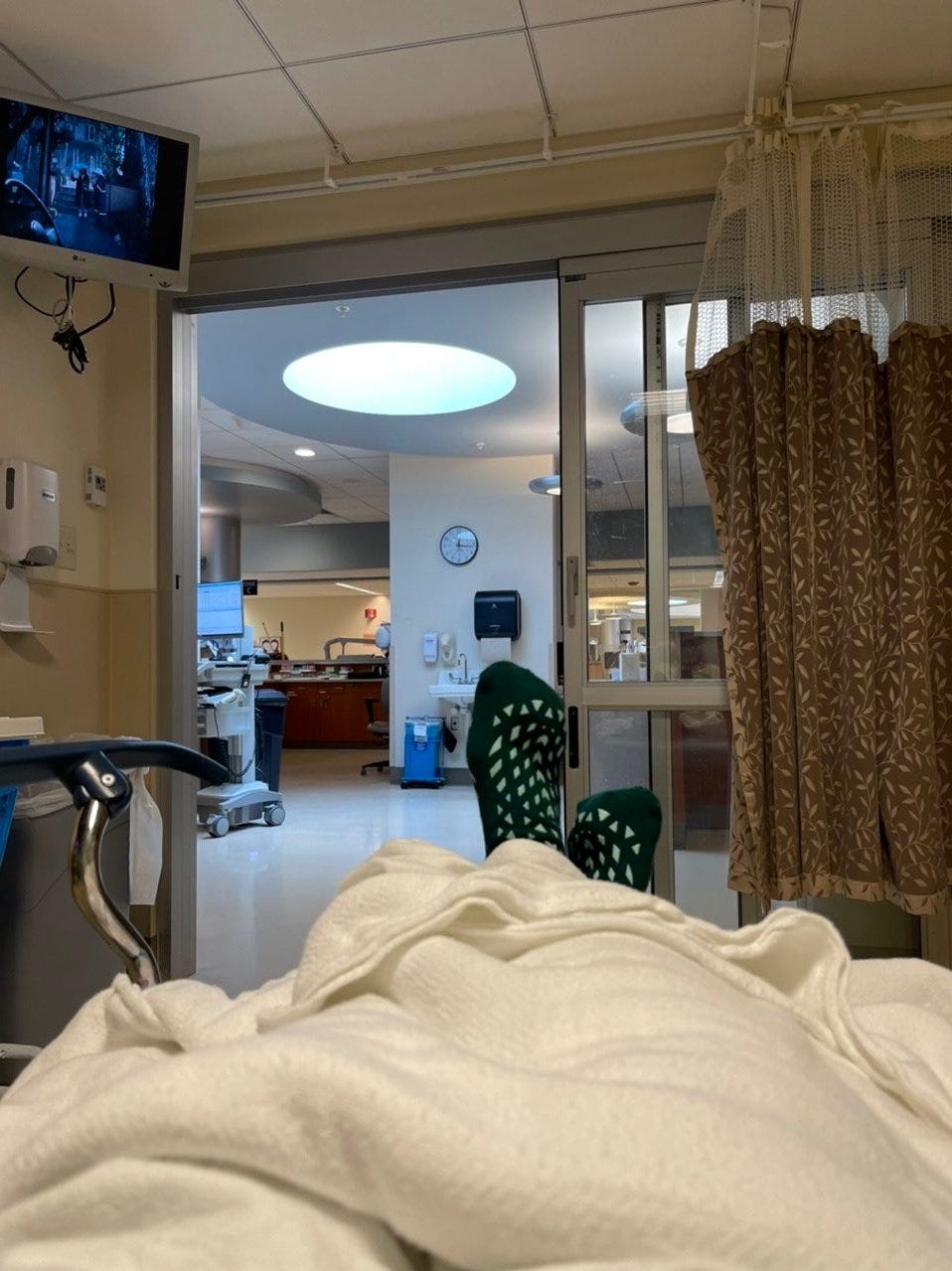Over a decade ago I was on a plane to somewhere. Where is not all that important, but what is, remembering the person who sat down in the seat next to me. They were a writer/editor I looked up to in the world of sailing.

In the years to follow, we stayed in touch, and during a time when I was feeling a touch lost, they shared these words of wisdom, “You have a voice, use it.”
These words have stuck with me for years yet I still from time to time feel lost and separated from their meaning. Until this morning when I read a very insightful Substack issue addressing the topic. The author,
, reminds his readers that there is only one thing people can not get online, buy in a store, or have made-to-order — you, your voice.For the last couple of months I have been writing outlines, researching topics, and basically filling up a notebook with everything I think readers might want out of my new publication. Most of it is driven by what I think people want to read. While I am of course into everything I’ve drafted out, it’s missing my voice.
Which begs the question, “What does it mean to use your voice?
A quick visit to the Dictionary leaves you with a wide range of definitions (Apple Desktop Dictionary):
voice | vois | noun
the sound produced in a person's larynx and uttered through the mouth, as speech or song: Meg raised her voice | a worried tone of voice. • the ability to speak or sing: she'd lost her voice. • (usually voices) the supposed utterance of a guiding spirit. • the distinctive tone or style of a literary work or author: she had strained and falsified her literary voice.
a particular opinion or attitude expressed: a dissenting voice. • an agency by which a particular point of view is expressed or represented: the newspaper was the voice of the students. • [in singular] the right to express an opinion: the new electoral system gives minority parties a voice.
Music the range of pitch or type of tone with which a person sings, such as soprano or tenor. • a vocal part in a composition. • a constituent part in a fugue. • each of the notes or sounds able to be produced simultaneously by a musical instrument (especially an electronic one) or a computer. • (in an electronic musical instrument) each of a number of preset or programmable tones.
Phonetics sound uttered with resonance of the vocal cords (used in the pronunciation of vowels and certain consonants).
Grammar a form or set of forms of a verb showing the relation of the subject to the action: the passive voice.
verb [with object]
express (something) in words: get teachers to voice their opinions on important subjects.
Phonetics utter (a speech sound) with resonance of the vocal cords (e.g. b, d, g, v, z): he is unable to voice the g sound. 3 Music regulate the tone quality of (organ pipes or a piano).
I bolded the sections which resonate with me, and I hope helps to guide me as I embrace the journey of finding my voice and thereby the creative flow of this new publication.
My interpretation of this is to simply be myself, honor the life I’ve lived and how it makes me, well, me. If I do that, those who find it interesting will connect with me and I with them. I can use my voice in a literal way or I can use it to express what I’m most passionate about.
One thing I do know, and it is universal — to find your voice, you have to exercise your voice.
An exercise that I’ve not been successful at completing, but would like to give it another go is a 100 “something” project. There is an annual formal 100-Day Project that usually kicks-off early in the year. I’ve attempted it twice and the first year I simply did not have the supplies to sustain my project and earlier this year I landed myself in the hospital (pictured below).
They say to become good at anything, you need to do it 100 times (or more). To make it a new habit, you should aim for a 30-day streak. I can hold myself to a 30-day streak, but not 100. My day-to-day life is often easily hijacked by outside variables.
With that said, 30 days to find my flow, and 100 posts to find my voice feels reasonable and doable. I can hold myself accountable for that and I hope you will join me.
The plan is simple and the topics covered — random. The string that will tie it all together will be my personal life experiences. I’m going to dip into my archives and old journals, reconnect with people I’ve met along the way, and exercise my voice through words, photography, illustrations, and the occasional podcast.
All I ask of you, to come along for the ride! There is no cost to you to follow me on this quest to find my voice.
For this journey of self-discovery I give myself permission to take as long as I need. There is no deadline or destination. The title of this publication is {slow & low} because when faced with a challenge it helps to slow down and even downshift into a lower gear. When you stop speeding along you are less likely to miss out on the little road signs.
Mind you, I am speaking both figuratively and literally.





Over 78 years I have found that I have many voices. Some resonate clearly and some fall on deaf ears. All these voices are my voice and the one I hear most lives between my ears and makes the most sense but rarely escapes in the way I hear it. Writers can let that voice out in such creative ways. I wish I could. Until then I’ll read what others say and marvel at how it mirrors my hidden inner voice. Keep exploring as it’s what feeds your curiosity. Without out it we’re voiceless.